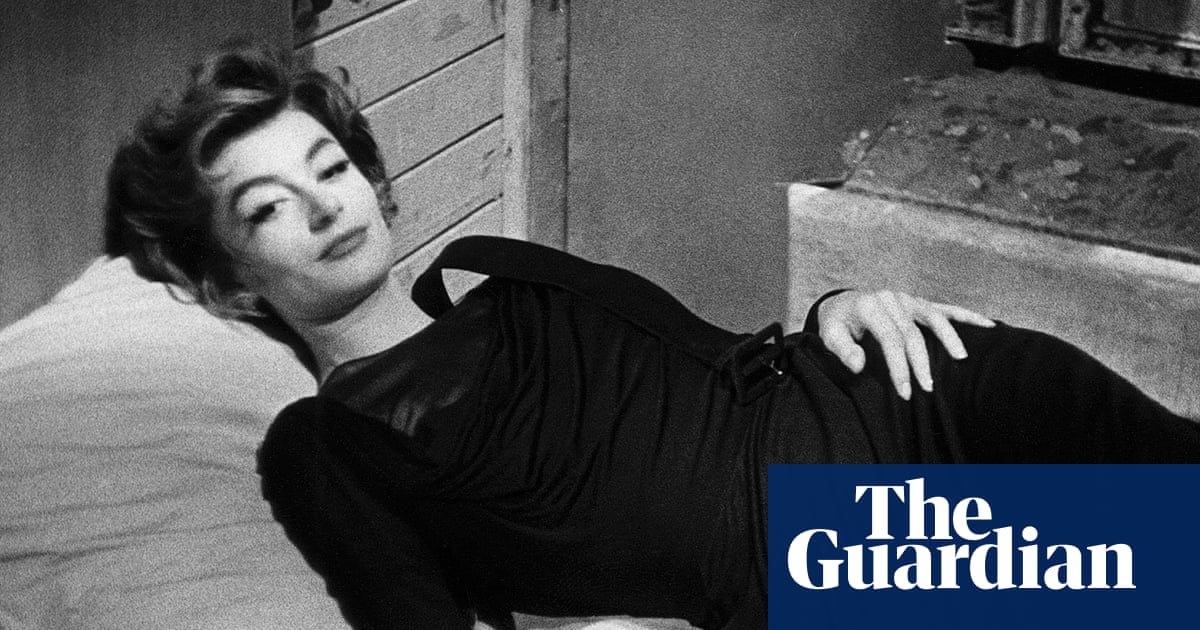Anouk Aimée, the French star of European New Wave classics including La Dolce Vita, A Man and a Woman and Lola, has died aged 92. Her daughter Manuela Papatakis announced the news on social media on Tuesday.
Papatakis said: “We have the immense sadness to announce the departure of my mother … I was close to her when she passed away this morning, at her home in Paris.”
Having broken into screen roles in the late 1940s, Aimée achieved international recognition with a series of high-profile successful films in the 1960s, associating her with the major directors of the era, Federico Fellini and Jacques Demy among them. Arguably her most influential hit was the Oscar-winning A Man and a Woman, opposite Jean-Louis Trintignant, released in 1966 and which won the best foreign language film and best original screenplay Oscars, as well as a best actress nomination for Aimée herself.
Born Nicole Françoise Florence Dreyfus in 1932 to actor parents (her father Jewish, her mother Catholic), Aimée began acting as Françoise Dreyfus, and was cast in a small role in her first film, The House Under the Sea, in 1946 aged 14. She kept her character’s name, Anouk, as a stage pseudonym, with “Aimée” supplied by poet Jacques Prévert, the co-writer of her first lead role in The Lovers of Verona, a modernised version of Shakespeare’s Romeo and Juliet.
Through the 1950s Aimée made a string of largely European films with directors of note, including adventure movie Golden Salamander opposite Trevor Howard, Zola adaptation Pot-Bouille for Julien Duvivier, and Modigliani biopic Montparnasse 19 with Jacques Becker. However she exploded into international stardom after she was cast in Fellini’s 1960 film La Dolce Vita; as the wealthy, liberated Maddalena who picks up reporter Marcello Mastroianni in a nightclub, Aimée appeared to incarnate a bohemian sexuality at the start of the new decade.
The impression was only reinforced by her next major role, in Jacques Demy’s Lola, released in 1961; Aimée played the title role, a showgirl who is the object of several men’s romantic interests. Aimée then reunited with Fellini and Mastroianni for 8½, released in 1963, in which she plays Mastroianni’s estranged wife Luisa. Three years later, she was cast in Claude Lelouch’s A Man and a Woman on the recommendation of co-star Trintignant, and the intensely romantic study of a relationship between two people whose previous spouses were both dead struck a major chord, becoming a breakthrough international hit for the French New Wave. The three would go on to reunite for follow-ups in 1986 (A Man and a Woman: 20 Years Later) and 2019 (The Best Years of a Life); the latter becoming Aimée and Trintignant’s final films released in their lifetimes.
As a result of A Man and a Woman’s success, Aimée was able to join the international film industry elite, appearing in films such as Justine (for George Cukor), The Appointment (directed by Sidney Lumet) and Bernardo Bertolucci’s Tragedy of a Ridiculous Man. Other highlights of her later career included Robert Altman’s fashion comedy Prêt-à-Porter, Happily Ever After starring Charlotte Gainsbourg and Yvan Attal, and Festival in Cannes from US indie director Henry Jaglom.
Aimée was married four times, including to fellow actor Albert Finney between 1970 and 1978, her fourth and last husband. Her daughter Manuela was the offspring of her second marriage, to Greek film director Nikos Papatakis.
#Anouk #Aimée #star #Dolce #Vita #Man #Woman #dies #aged #Film,
#Anouk #Aimée #star #Dolce #Vita #Man #Woman #dies #aged #Film
